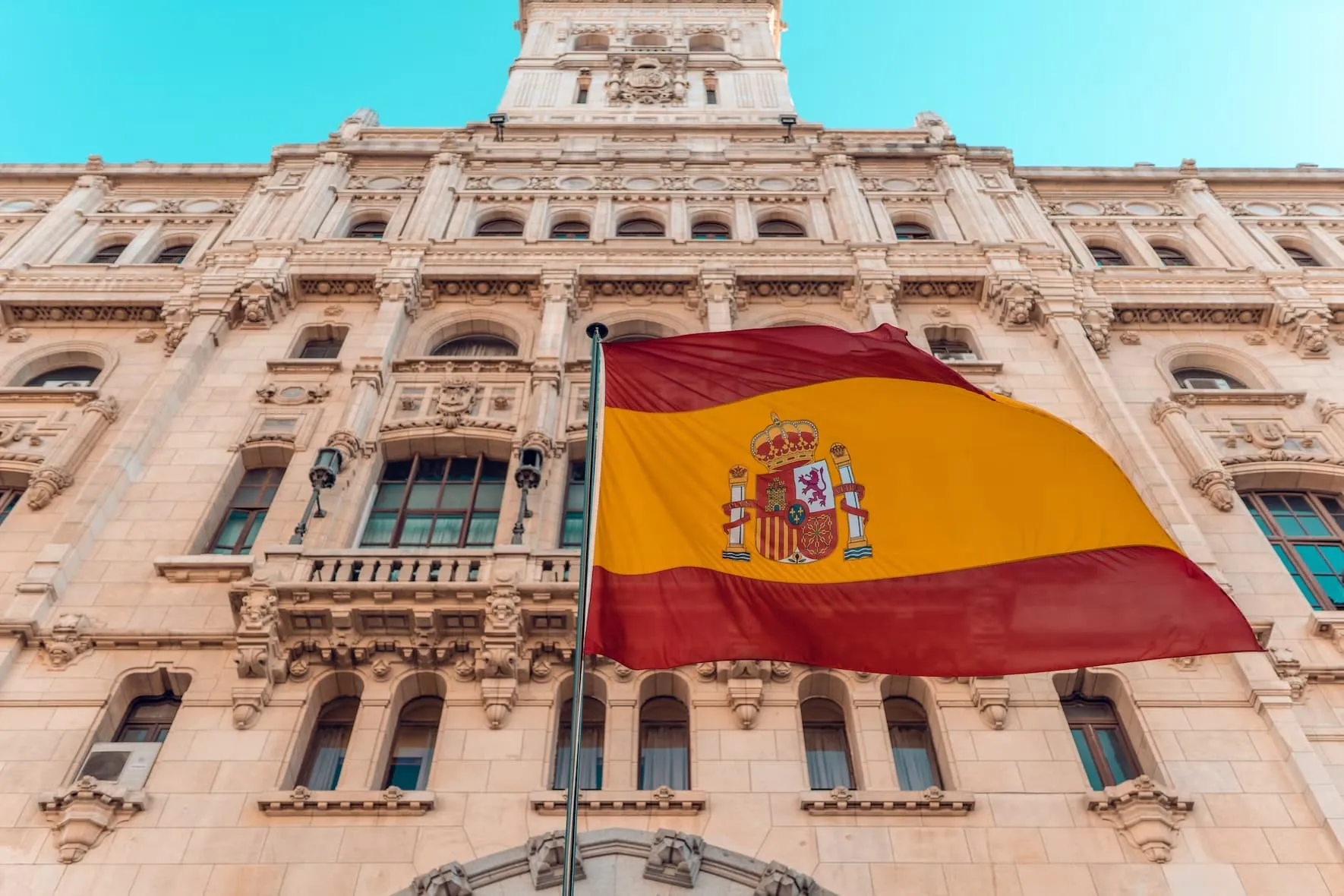Spain Non-EU Ascendant Visa
Are you looking to apply for a Spain Non-EU Ascendant Visa? The process can be complex, so ensure you understand the requirements and have all the necessary documents.
Get expert help by contacting one of our experienced immigration advisers at the Immigration Advice Service at (+44) 333 4149244 or online. We’ll be happy to guide you through the application process and help you reach your goals.
Read our 1001 reviews
Request a call back from our immigration experts
Benefits of Choosing IAS‘ Spain Immigration Lawyers
When it comes to obtaining a Spain visa or permit, IAS Spain immigration lawyers are well-equipped to help you.
With IAS’ track record of successfully helping clients visit or immigrate to Ireland successfully, we can help businesses and individuals achieve their goals.
Our dedicated immigration lawyers provide our services through a comprehensive and personalised approach. With IAS, you enjoy:

Expert support from an experienced immigration lawyer dedicated to your success



Support in gathering supporting documents and completing a high-quality application.



Confidence that your case is being handled by an experienced team.



In-house document checks done by lawyers who are accredited by the IBA in Madrid and Seville.
Services we Provide
Overview of the Spain Non-EU Ascendant Visa
The Spain Non-EU Ascendant Visa is a new family reunification visa that allows non-European citizens with a residence permit in Spain to bring their relatives to the country.
To apply for this visa, applicants must provide valid passports, documents proving family ties with the Spanish citizen, and other supporting documents. The visa also grants temporary residency in Spain and visa-free travel throughout the European Union. This means that holders of this visa will be able to live and work in Spain and travel throughout the European Union without needing additional visas.
This is a significant development for those looking to reunite with their families in Spain and offers new opportunities for non-European citizens. It is important to note that this visa is for family reunification and not for other purposes such as work or study.
Navigating the immigration process can be difficult, but that’s where the Immigration Advice Service (IAS) comes in. Our team of experts is here to help you with all your needs. Whether you need assistance with your application or have questions about the process, we’re here to help. Contact us today at (+44) 333 4149244 or visit our website for more information.
What Are the Eligibility Criteria of the Spain Non-EU Ascendant Visa?
Overview
Before applying for a Spain non-EU ascendant visa, you must be sure that you satisfy all the eligibility criteria. You must meet these requirements to ensure your application is accepted.
In this section, we will break down the requirements for the Non-EU Ascendant Visa, including proof of family ties, economic means, and long-term residence in Spain.
Proof of Family Ties
To apply for the Non-EU Ascendant Visa, you must provide evidence of family ties with a non-European resident in Spain. This can be shown through marriage or birth certificates. Keep in mind, additional proof may be required if you need to prove dependency. To demonstrate family ties, you can use a combination of documents such as the Regrouper’s birth certificate, the marriage certificate of the Regrouper and their spouse, and the couple’s birth certificate if the regrouped individuals are in-laws.
Economic Means
In addition to proof of family ties, applicants must also demonstrate their ability to support themselves and their families in Spain. To establish economic dependence, evidence of financial support covering substantial expenses in the preceding months must be provided. Also, proof of employment or sufficient economic means and health care coverage should be provided.
Security Risk
Applicants for the Non-EU Ascendant Visa are also subject to a security risk assessment. This ensures that applicants do not threaten Spain’s national security.
Insurance Policy
It’s also important to note that an insurance policy must be valid for one year and cover all visa beneficiaries for risks insured by Spain’s public health system.
Specific Requirements
If you’re looking to apply for a Spain Non-EU Ascendant Visa, there are a few specific requirements you’ll need to meet. In addition to the general eligibility criteria, the application process requires a few additional documents. These include:
- Schengen visa application form
- Passport-type photo
- Valid passport or official travel document
- Proof of travel insurance
- Payment receipt of visa fees.
Some other requirements that must be met in order for the application to be successful include:
- Applicant must be over 65 years old
- Applicant must be economically dependent on the Regrouper
- Regrouper must have a permanent or long-term EU residency card with a minimum residency of 5 years in Spain.
It is important to have all the required documents before submitting the application to avoid delays or rejection.
What Is the Application Process for the Spain Non-EU Ascendant Visa?
The Spain Non-EU Ascendant Visa application process involves collecting the required documents, scheduling a visa appointment, attending the visa interview and submitting biometrics, and paying the visa fee. After completing these steps, applicants must wait for their visas to be processed.
Collecting the Required Documents
When applying for a visa, it’s crucial to have all the necessary documents to ensure a smooth and efficient process. Below is a list of the required documents for the Spain Non-EU Ascendant Visa:
- A document proving family ties with the non-EU citizen (e.g., a birth certificate): This document serves as proof of your relationship with the non-EU citizen you will visit in Spain.
- A Schengen visa application form: The official form must be filled out to apply for a visa to enter the Schengen Area.
- A passport-type photo: A recent passport-style photo is required for the visa application.
- A passport or official travel document: A valid passport or official document is required for international travel.
- Travel insurance: Travel insurance is mandatory for the application.
- Payment of visa fees: The visa fees must be paid before submitting the application
- A police character certificate (with fingerprints) issued and legalised by all the countries where the applicant has been living for the last five years: This certificate serves as proof that the applicant has a clean criminal record and must be obtained from all the countries where the applicant has been living for the last five years.
- Housing report: This is a document that shows the condition of your relative house. It is meant to prove to the authorities that you can live comfortably in your relative’s house.
Scheduling a Visa Appointment
Once all the required documents have been collected, the next step is scheduling a visa appointment. You can do this through the Spanish embassy or consulate in the applicant’s country of residence. It’s important to schedule the appointment as early as possible, as availability may be limited.
Attending the Visa Interview and Submitting Biometrics
The next step in the Spain Non-EU Ascendant visa application process is attending the visa interview and submitting biometrics. During the interview, applicants will be asked about their reasons for immigrating to Spain and their plans to live there. Preparing for this interview is essential, as it can affect the visa application.
Paying the Visa Fee
The last step in the procedure for obtaining a Spain Non-EU Ascendant visa is the payment of the visa fee. This fee may vary according to the applicant’s country of residence. For instance, citizens of the United States must pay €123, while citizens of Canada must pay €507. Other nationalities are required to pay €75. It is crucial to ensure that the fee is paid in full and on time, as failure to do so can cause delays in the visa application process.
Processing Time and Potential Delays
Applying for a Spain Non-EU Ascendant Visa typically takes up to 3 months, although exceptional cases may take up to 60 days. It is recommended not to purchase plane tickets until the visa has been issued, which can take 2-4 weeks. The certificate should be issued three months before the date of the application. Potential delays may occur due to incomplete or incorrect documentation.
Checking the Status of the Application and Denied Applications
To check on the progress of a Spain Non-EU Ascendant Visa application, applicants can reach out to the Spanish embassy or consulate in their home country. If the application is denied, individuals can file an appeal within a 3-month timeframe of receiving the decision.
If you encounter difficulties or have any questions regarding the application process, the Immigration Advice Service is available to assist. Our team of immigration experts can provide a range of services, including legal document automation and assembly, e-signature services, litigation support, and more. Don’t hesitate to contact us at +44 333 4149244 or through our website for any assistance needed during the visa application process.
After the Visa Is Granted
Once a Spain Non-EU Ascendant Visa has been granted, the holder is granted several rights and responsibilities. This visa allows the holder to travel to Spain and move around the territory of any Schengen state for a maximum of 90 days. Additionally, visa holders can bring their relatives to Spain through family reunification.
When it comes time to renew the visa, applicants must apply for renewal of their residence permit. The specific documentation required for renewal varies based on the type of visa being applied for. It is crucial to ensure that all necessary documents are gathered before applying for renewal. Maintaining compliance with visa requirements and renewing the visa promptly is essential for maintaining legal residence in Spain. Here are some tips for maintaining compliance with the visa requirements and renewing the visa when necessary:
- Make sure to research all the relevant visa requirements and have all the necessary documents ready before applying.
- Follow all instructions during the application process and submit any required documents or evidence on time.
- Give yourself enough time to prepare and collect all the necessary documentation, as a delay in gathering the proper paperwork could lead to a prolonged visa review process.
- If the application is rejected, make sure to appeal the decision if the applicant believes they have a valid case.
- Renew the visa before it expires to ensure that the applicant and any accompanying family members continue to enjoy the rights and privileges that come with a Spain Non-EU Ascendancy Visa.
By following these steps and adhering to the necessary regulations, applicants can ensure that their visa remains valid and in good standing. With the proper preparation and understanding of the visa requirements, applicants can maintain their visa for years and enjoy its many benefits.


What Do I Do if My Application for the Spain Non-EU Ascendant Visa is Rejected?
Overview
If your application for the Spain non-EU ascendant visa was rejected, there are several steps you can take. In this section, we’ll walk you through submitting an appeal for reconsideration, known as a “recurso de reposición” in Spanish.
Submit an Appeal for Reconsideration
The first step in the process is to submit an appeal for reconsideration to the Consular Office within one month of receiving notification of the refusal. This is the same office that issued the rejection, and you’ll generally submit your visa rejection letter at the Embassy or Consulate of the Schengen country you plan to visit.
Provide Additional Documents or Data
The Consular Office may also ask you to submit any missing documents or provide additional documents or data necessary to rectify your application. Be sure to respond promptly and provide all requested information to give your appeal the best chance of success.
Time Frame
Remember that the appeals process can take time, so be patient and stay in contact with the Consular Office. And it’s also important to note that even if your appeal is successful, it does not guarantee that your visa will be granted.
However, if your application was initially denied due to a mistake or oversight, submitting an appeal can help correct the problem and increase your chances of being approved for a visa.
How Can IAS Help?
If you’re looking to apply for a Spain Non-EU Ascendant visa, the Immigration Advice Service (IAS) can assist you in making the process as seamless as possible. Our team of immigration experts offers a comprehensive range of services, including legal document automation, assembly, e-signature, litigation support, and more. We understand that navigating the immigration process can be daunting, so we personalise our services to meet your unique needs.
With the IAS, you can have peace of mind knowing that your documents are in capable hands and that we will handle your application with the utmost care and attention to detail. Don’t let the stress of immigration paperwork hold you back from reaching your goals. Contact us today at (+44) 333 4149244 or visit our website to learn more about how we can assist you with your Spain Non-EU Ascendant Visa application.
Table of Contents
Table of Contents will appear here.Legal Disclaimer
The information provided is for general informational purposes only and does not constitute legal advice. While we make every effort to ensure accuracy, the law may change, and the information may not reflect the most current legal developments. No warranty is given regarding the accuracy or completeness of the information, and we do not accept liability in such cases. We recommend consulting with a qualified lawyer at Immigration Advice Service before making any decisions based on the content provided.
Frequently Asked Questions
To apply for the Spain Non-EU Ascendant visa, the non-EU citizen in Spain must first request an appointment at the Foreigner’s Office and complete and sign a copy of the EX-01 form along with their visa application and other required documents.
To obtain the Spain Non-EU Ascendant Visa, applicants must provide proof of identity and family ties with a non-European citizen with a Spanish residence permit, such as a marriage or birth certificate, a filled-in visa application form, a valid passport, and other documents depending on the type of visa.
The processing time for the Spain Non-EU Ascendant Visa is up to 2 months, and the entire family reunification takes around 4-5 months.
The requirements for the Spain Non-EU Ascendant Visa include a document proving family ties with the EU citizen, such as a marriage certificate or birth certificate, and proof of financial stability.
Yes, there is a minimum stay requirement for the Spain non-EU ascendant visa. According to Spanish government regulations, the visa is valid for 90 days. Applicants must apply for a Foreigner Identity Card within one month of arriving in Spain for family reunification visas. Applicants must have resided in Spain for a minimum of 5 years.


What our clients are saying
How our UK Immigration Lawyers can help
At the Immigration Advice Service our lawyers specialise in a wide range of UK visas, nationality and asylum applications and have represented clients in various successful complex and high-profile cases.















